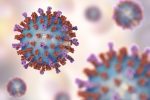Some Doctors in Japan More Aware of HAE Than Others, Survey Finds
Better HAE awareness among doctors may lead to earlier diagnosis and treatment

Dermatologists, pediatricians, and emergency doctors may be more aware of hereditary angioedema (HAE) than doctors of other specialties, according to an online survey conducted in Japan.
This discrepancy among healthcare professionals highlights the importance of educational efforts and specialist accreditation in raising awareness about the condition within the medical community, researchers said.
“Awareness of HAE among physicians can lead not only to early diagnosis but also to the elimination of unnecessary and invasive diagnoses and treatments,” they wrote.
The study, “Physician awareness and understanding of hereditary angioedema: a web-based study in Japan,” was published in the Journal of Cutaneous Immunology and Allergy.
Most patients with HAE carry a mutation in SERPING1, the gene that provides instructions for making a complement protein called C1 inhibitor. Normally, C1 inhibitor is found in the blood, where it works with the body’s immune system to control responses to infection and injury. When its levels are too low, excess fluids leak through blood vessels and build up in tissues.
This can cause edema (swelling), particularly in the face, hands, feet, airways, and digestive tract. Sometimes, patients may experience general symptoms, such as difficulty breathing or abdominal pain.
While many doctors may encounter HAE patients in their daily clinical practice, researchers were concerned that “low disease awareness may [contribute] to a considerable number of undiagnosed HAE patients in Japan.”
In a 2008 survey, fewer than half of nearly 4,500 doctors in Japan were aware of HAE, and more than 600 patients with the condition remained undiagnosed by doctors unaware of the disease.
To find out how much doctors are currently aware of HAE, and barriers they may find when working up to its diagnosis, researchers surveyed a group of Japanese doctors from several specialties using a web-based questionnaire.
In the main section of the questionnaire, doctors were asked to solve the case of a fictitious patient with HAE who had difficulty breathing. To do so, they needed to demonstrate their understanding of the symptoms and the work-up toward the diagnosis and treatment of HAE.
The other sections asked questions about the doctor’s age, sex, and clinical practice.
A total of 692 doctors answered the questionnaire. There were 238 internists, 119 pediatricians, 113 gastroenterology (digestive health) surgeons, 112 emergency doctors, and 110 dermatologists.
Their mean age was 48.6 years and most (88.9%) were male. About one-third (35.7%) worked primarily in a general hospital.
When presented with the case of the fictitious patient, about two-thirds (67.3%) of all doctors first suspected angioedema. However, slightly less than half (49.0%) would choose to order a blood test to check the levels of C1 inhibitor to reach a diagnosis.
Dermatologists, pediatricians, and emergency doctors were more aware of HAE than doctors of other specialties. In their answers to the questionnaire, 83.2% of pediatricians, 73.2% of emergency doctors, and 72.7% of dermatologists said they first suspected angioedema, versus 61.8% of internists and 51.3% of gastroenterology surgeons.
The proportion of doctors who chose the C1 inhibitor blood test to confirm the diagnosis ranged from 25.7% (gastroenterology surgeons) to 71.8% (dermatologists).
“Disease awareness of HAE varied among medical specialties, suggesting the importance of educational activities in academic societies and specialist accreditation in raising HAE awareness,” the researchers wrote.
About two-thirds (65.9%) of the doctors would admit the fictitious patient into the hospital for further follow-up. The proportion of physicians making this decision ranged from 63.0% (internists) to 71.4% (pediatricians).
Data also demonstrated that doctors who were aware of some of the hallmark symptoms of HAE, such as swelling of the voice box, swelling after tooth extraction, swelling of the tongue, and abdominal pain, were more likely to strongly suspect angioedema. However, the diagnosis of HAE requires doctors to order a blood test for a complement protein such as C1 inhibitor.
“Proper knowledge of complement testing and HAE symptoms may help not only to diagnose patients with [angioedema]-like symptoms as [angioedema] but also to differentially diagnose HAE from [angioedema],” the researchers wrote.








